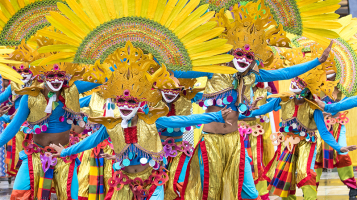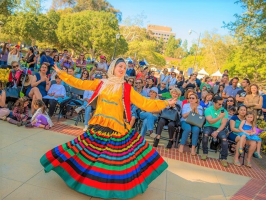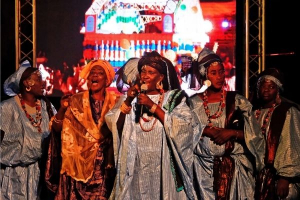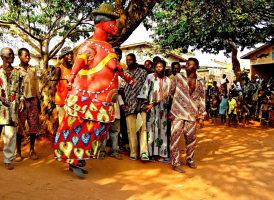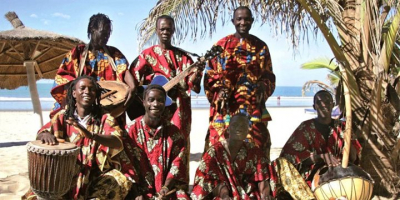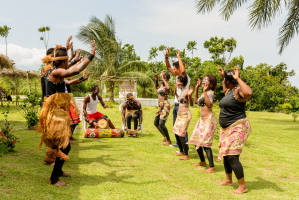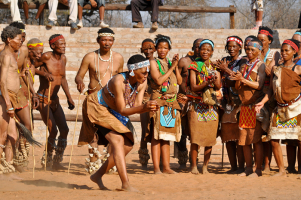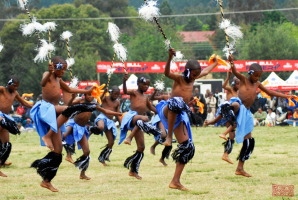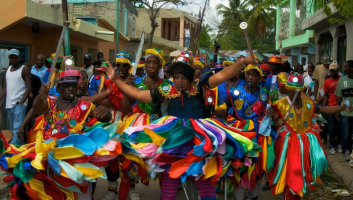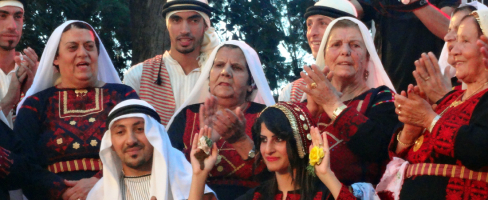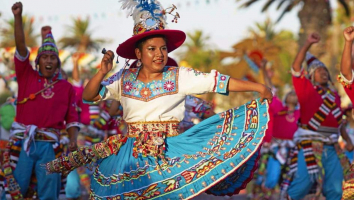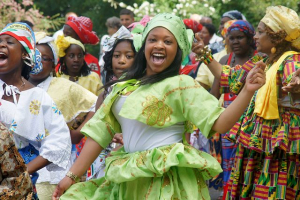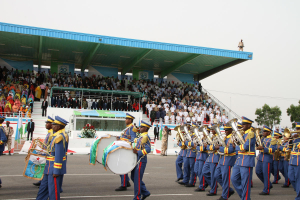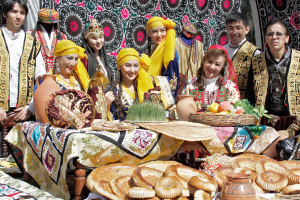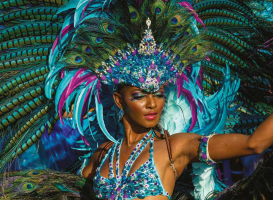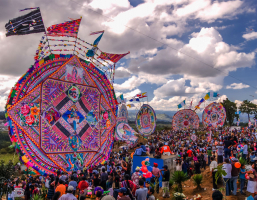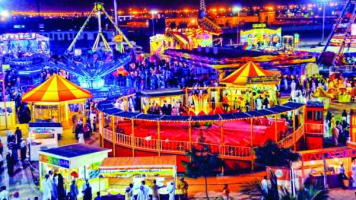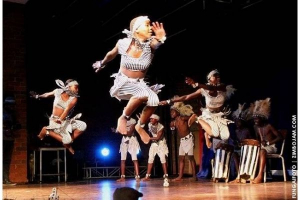Top 10 Most Famous Festivals in Bulgaria
Bulgaria is a country with a long history and a diverse culture. Many civilizations have inspired the culture we witness today. The unique combination of ... read more...ancient pagan rites, rituals, and vibrant and colorful festivals has piqued the interest of many and continues to attract tourists from all over the world. Festivals have long played a significant role in Bulgarian culture. Here are the 10 most famous Bulgarian festivals that you must attend!
-
Kukeruvane's ceremony is without a doubt one of the oldest and most fascinating Thracian rituals to have survived. This ancient pagan activity focuses on the idea that humans may dispel evil spirits and energy by using music (bells, chants, and other symbolic noises), dance, and handcrafted costumes. Many felt that this activity may bring the village good luck for the coming year, as well as good health and a plentiful harvest.
The event is now held once a year in the town of Pernik and is still regarded as an important local institution. People from all around the country dress up as various monsters,and then take part in ritualistic games and parades. The contestants' masks (known as kukeri) are exceedingly inventive and unique. The idea behind each outfit is that by using specific symbols and patterns, the individual wearing it will be able to effectively banish evil from the hamlet or town.
Surva Carnival, also known as the International Festival of the Masquerade Games, is the largest Kukeruvane festival. The event is so compelling by nature that it has been listed on UNESCO's list of protected non-material cultural treasures since 2015.
When: in January
Where: Pernik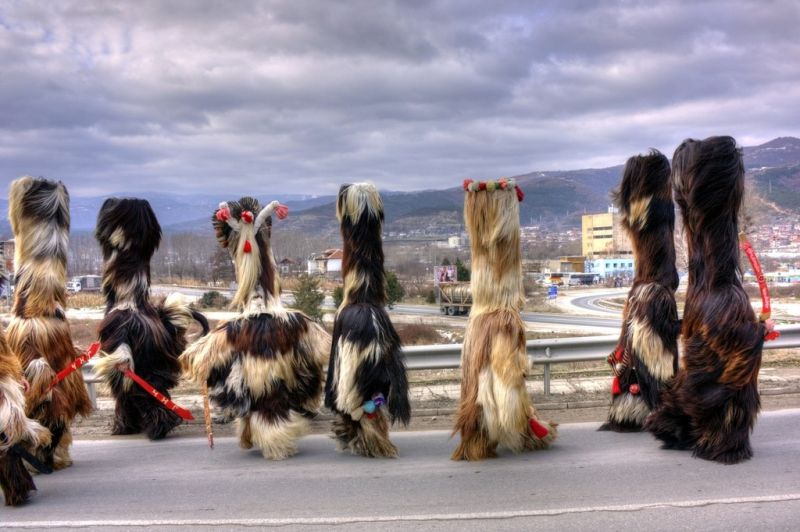
Photo: https://theculturetrip.com/ 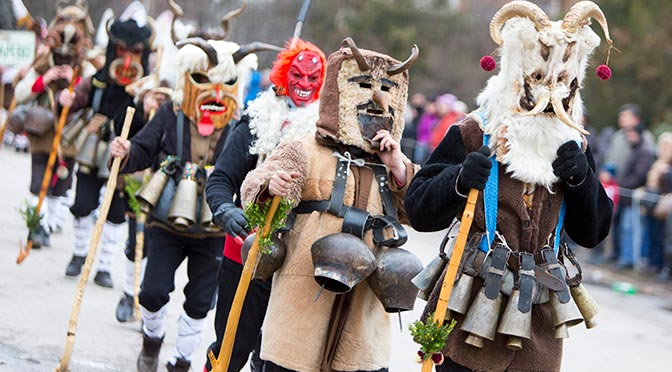
Photo: https://e-volution.media/ -
Another old pagan practice dating back to the Thracians is Nestinarstvo. The practice is supposed to have started with tribes living around the White Sea. Fire dance is one of Bulgaria's oldest folk traditions, and it is still practiced in several Greek and Bulgarian communities today. Every year, on May 21st, the annual ritual cycle begins and lasts for three days. The rite is performed in various mountain communities in the Strandzha area of Bulgaria, with Bulgaria being the most popular.
The ceremony is usually conducted by professionally trained nestinari (firewalkers) who perform a fascinating dance while walking on flames in a realistic atmosphere. The dance features meticulously organized motions, as well as original music, chants, and sounds. The event takes place after dusk when the village center is engulfed in flaming embers. Due to its intriguing nature, the event has long attracted international attention. The ceremony has been designated as a UNESCO World Heritage site for non-material culture since 2009.
When: in June
Where: Bulgari village
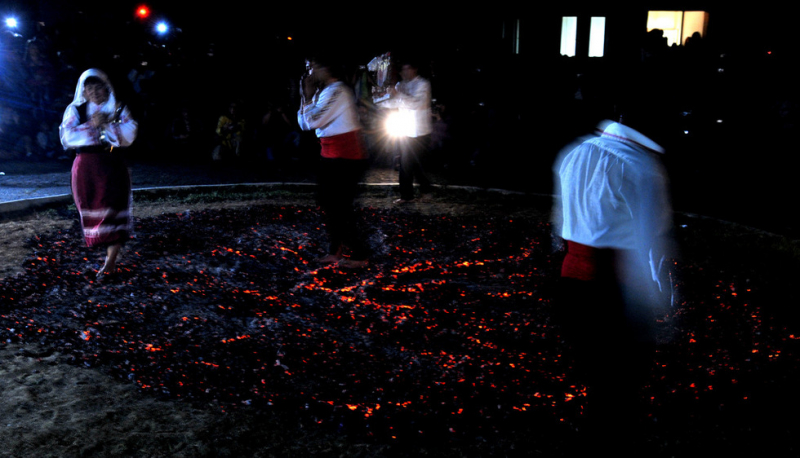
Photo: https://theculturetrip.com/ 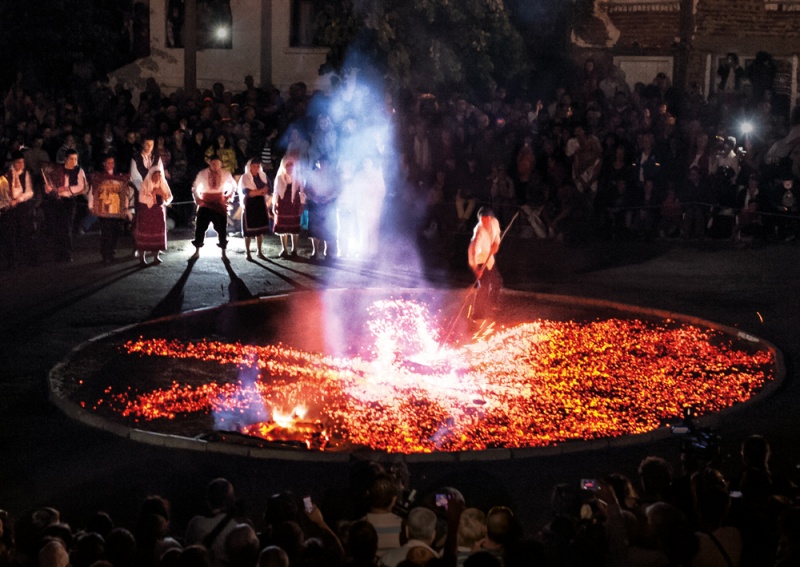
Photo: https://vagabond.bg/ -
The Rozhen National Folklore Festival is one of the country's oldest celebrations. It was held for the first time in 1898. People from adjacent villages on both sides of the border would regularly congregate to celebrate local traditions because the border between Bulgaria and the Ottoman Empire ran through Rozhen Peak.
During the 5-century Ottoman rule, local customs, traditions, folklore, literature, and religion were all major unifiers for the Bulgarian people. People went to tremendous lengths to preserve as much of the real Bulgarian folklore as possible. Traditional folk music was included.
Every four years, in August, the festival takes place. It's a well-known national celebration of folklore and local customs. It also happens to be the country's largest folk singing event. You can see some of the most popular Rhodopean singers play famous folk songs from the region for two evenings in August. The festival's characteristic orchestra, Sto Kaba Gaydi, is a trademark of the event (One Hundred Bagpipes).
When: in August
Where: Rozhen
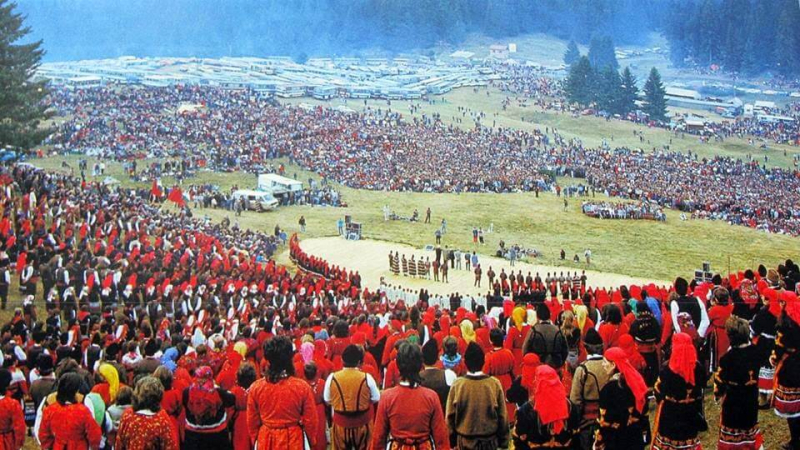
Photo: https://freeplovdivtour.com/ 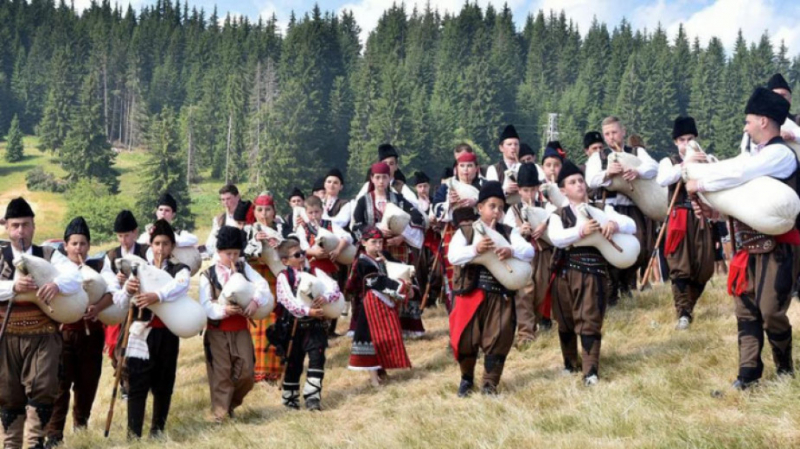
Photo: https://bnr.bg/ -
Folk costumes were worn in various villages and areas across the country for millennia until the turn of the twentieth century. They are a vital aspect of Bulgarian culture and were traditionally used to express an ethnic group's identity as well as their social position. Local materials such as wool, cotton, and linen were used to make the garments. They included some highly distinctive and elaborate patterns (known as Shevitsi), as well as gorgeous embroidery and hand-sewn embellishments.
The National Costume Festival is known as a famous festival and the country's largest event of its kind, honoring the originality and diversity of traditional Bulgarian costumes. Every year, a significant crowd attends the festival, which is hosted in the Zheravna architectural reserve. What makes this event unique is that all attendees must dress in traditional attire and are not permitted to bring any modern objects with them.
The Zheravna architectural reserve is one of the best-preserved settlements from the National Revival era in the country, adding to the uniqueness of the experience. Folk music, dances, dining, and socializing are all featured at the festival.
When: in August
Where: Zheravna
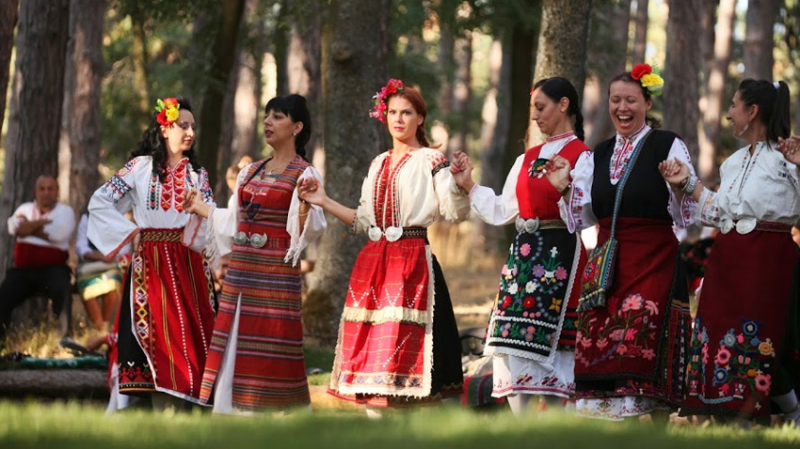
photo: https://bnr.bg/ 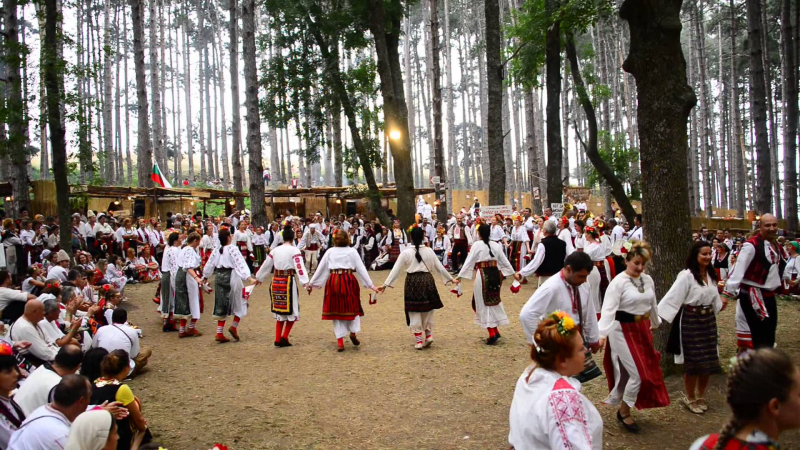
Photo: https://travelbulgaria.news/ -
The Rose Celebration is one of Bulgaria's emblems, and it is possibly the most famous festival outside the country. Its inaugural edition took place in 1903, and it is a very stunning sight to see. Thousands of visitors (including foreigners) flock to Kazanlak every year during the rose harvest season in June, wanting to take part in the colorful celebrations and festivities.
Bulgaria is one of the world's major producers of rose oil, and the rose oil produced in Kazanlak is regarded as among the best. Visitors to the festival will gain an understanding of the distillation process and witness firsthand how rose oil is produced (hint; it requires many roses). The festival program also includes the selection and crowning of a Rose Queen, as well as daily activities that demonstrate the gathering and distillation routine.
You will have the opportunity to purchase cosmetics, soaps, rose water, homemade rose jam, wine, and rose elixir, all of which contain roses or rose oil.
When: Every first weekend of June
Where: Kazanlak
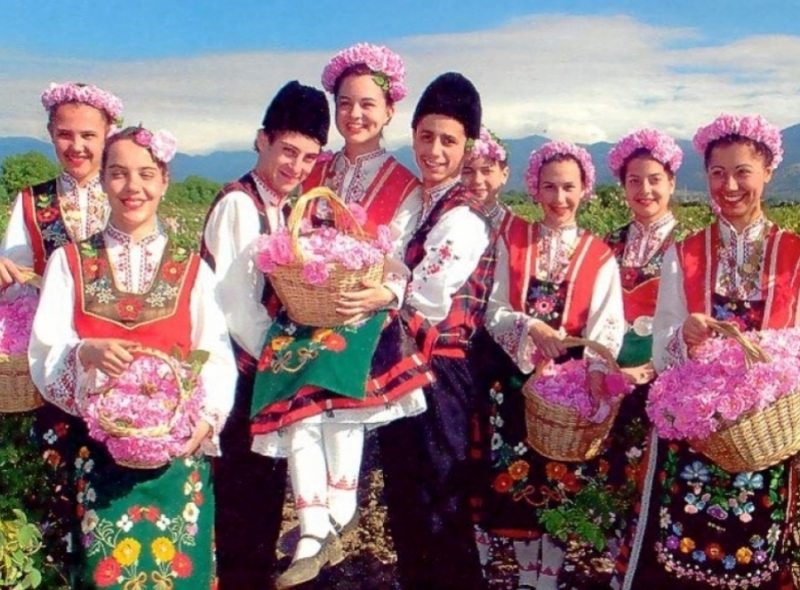
Photo: https://www.magictours-bg.com/ 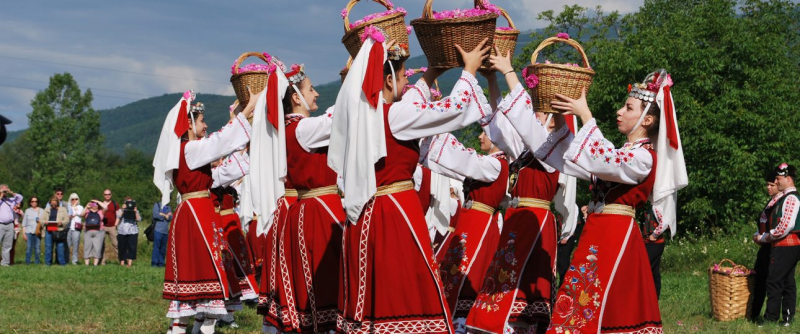
Photo: https://bulgariarosefestival.com/ -
Yordanovden is a major winter celebration with significant religious importance. It's one of the country's most famous Eastern Orthodox festivals. The celebration is held to commemorate Jesus Christ's baptism in the Jordan River. On January 6th, it is traditionally held in the mountain town of Kalofer.
A water consecration service is required by local tradition. Following the ceremony, the priest tosses a cross into the water, and a group of unmarried men leaps in after it, into the freezing water of the river, according to local custom. Whoever recovers the cross will be happy and healthy for the rest of the year. The traditional river dance known as "horo" in the frigid waters of Byala Reka is another important part of the event (white river).
When: in January
Where: Kalofer
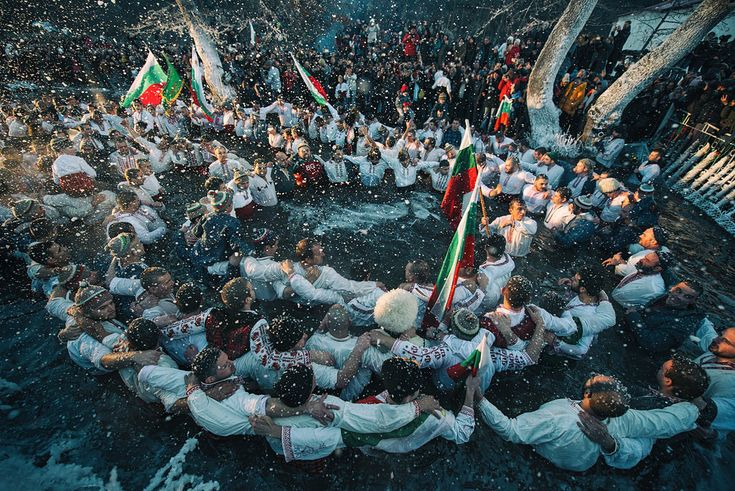
Photo: https://www.pinterest.com/ 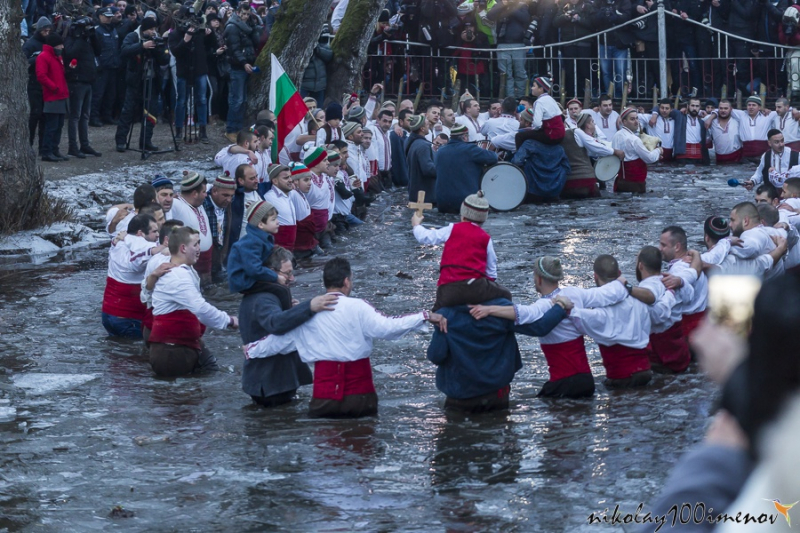
Photo: https://travel.nikolay100.com/ -
For more than 14 years, the International Bagpipe Contest has been held in Gela. The festival takes place in the lovely mountain village of Gela and is a once-in-a-lifetime opportunity to see the power of true Bulgarian folklore music. The festival has grown in popularity in recent years, progressively reaching beyond Bulgaria's boundaries. Contestants from France, Hungary, Holland, the United Kingdom, and even Japan go to Bulgaria to compete in these one-of-a-kind competitions.
Every year in August, exceptional bagpipers from Bulgaria and throughout the world compete for material and financial prizes as well as an honorary certificate in front of a panel of judges. The event draws around 13 000 people to Gela's lush meadows. It is one of the most famous festivals in Bulgaria.
When: in August
Where: Gela
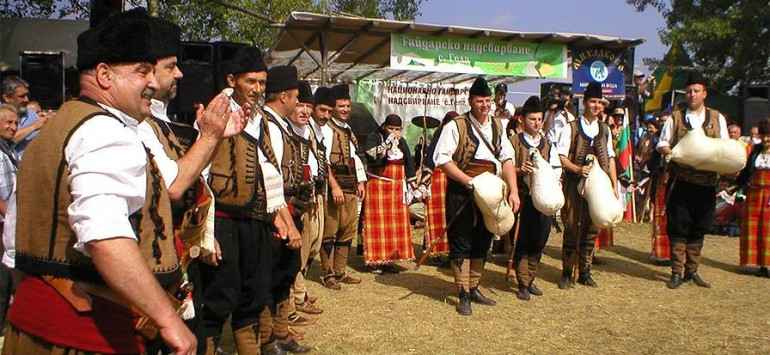
Photo: https://tour4fun.info/ 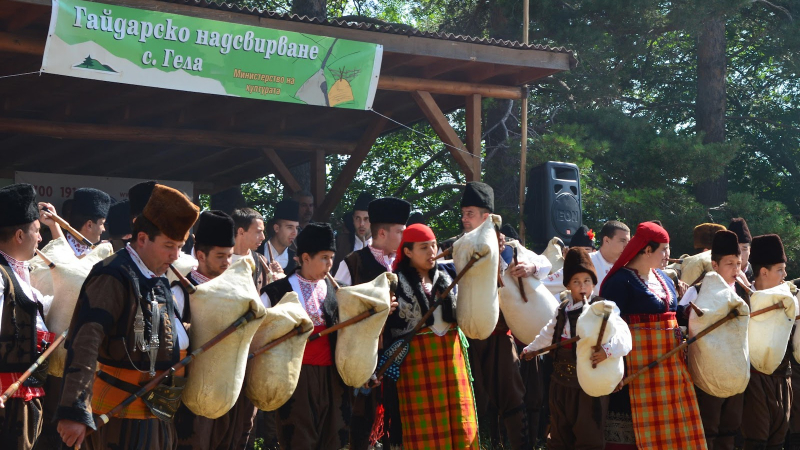
Photo: https://travelbulgaria.news/ -
Known as a famous festival in Bulgaria, Pirin Sings is yet another festival dedicated to Bulgarian ethnic music's allure. Even though the festival only takes place once every five years, it is nonetheless one of Bulgaria's most important cultural events. At the beginning of August, the event takes place in the Predela pass near Razlog (between the Rila and Pirin mountains). The festival's next iteration is scheduled for 2020, and it is expected to attract even more guests than the previous edition (between 2000 and 3000).
The festival's goal is to showcase the beauty and diversity of authentic Bulgarian folk music from the Pirin mountain range. Pirin Sings attracts followers of the genre from all around the country, as well as a large number of international tourists. A professional jury reveals the victors at the end of the festival's program, which includes several competitions among vocalists. On multiple open-air stages, talented vocalists of all ages present their art, all dressed in colorful traditional costumes.
When: in August
Where: Razlog (Predela pass)
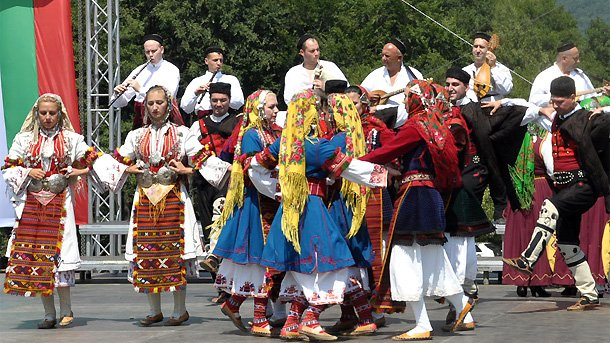
Photo: https://bnr.bg/ 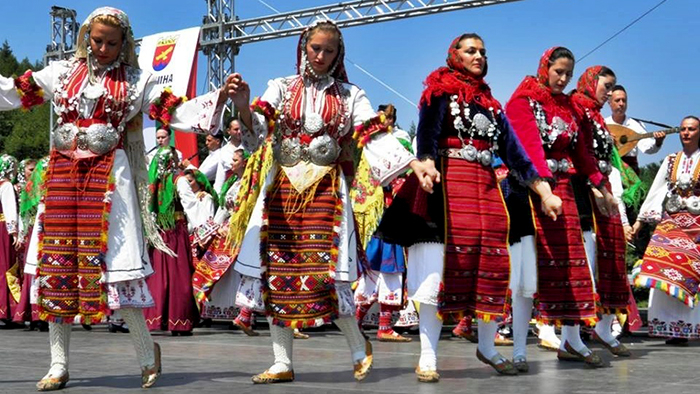
Photo: https://davidsbeenhere.com/ -
The International Jazz Festival in Bansko is one of Bulgaria's most famous musical festivals. Its initial edition took place in 1998, and it has since grown into an annual event that attracts visitors from all across the country and overseas. Vili Kazasyan, Georgi Borisov, Angel Zaberski, Big Band Blagoevgrad, and various orchestras from Germany and Austria are among the previous guest artists.
The concerts are usually held in the evenings on the open-air stage in downtown Bansko's Nikola Vaptsarov Square. The resort of Bansko is transformed into a jazz music platform for the full week, and jazz fans may enjoy an astounding range of concerts on smaller stages in the resort's local taverns and restaurants.
When: in August
Where: Bansko
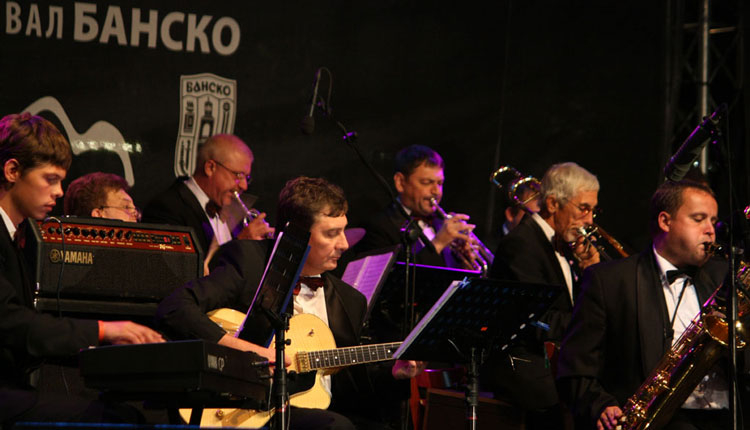
Photo: https://www.banskoski.com/ 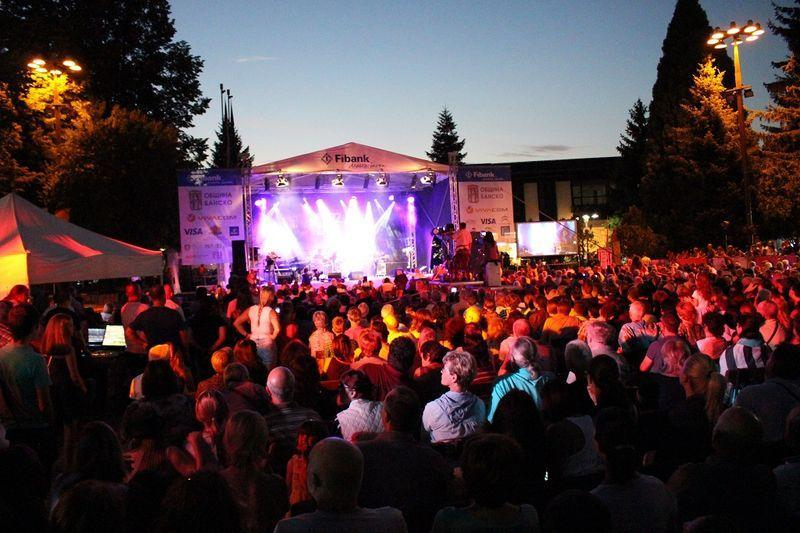
Photo: https://www.vhband.com/ -
Cherries are one of Bulgaria's most popular fruits for preserving and preparing jams, fruit juices, and even alcoholic beverages (a tasty liqueur called Vishnovka). The approach of spring and the harvest of the luscious fruit are generally associated with the cherry season. For decades, the villagers have been preserving it, and many will tell you that nothing beats a homemade cherry jam with pancakes in the morning. Cherry Festival in Kyustendil become one of the most famous festivals in Bulgaria.
Every year at the end of June, the festival lasts two days and is a terrific way to learn about the amazing cherry varieties that bloom in Bulgaria, particularly in the Kyustendil region. This is the region that produces some of the highest-quality cherries. Locals and several smaller helpers from schools and kindergartens frequently attend the celebrations. The festival is a fantastic opportunity to sample and purchase cherry-based items prepared with passion by the locals.
When: in June
Where: Kyustendil
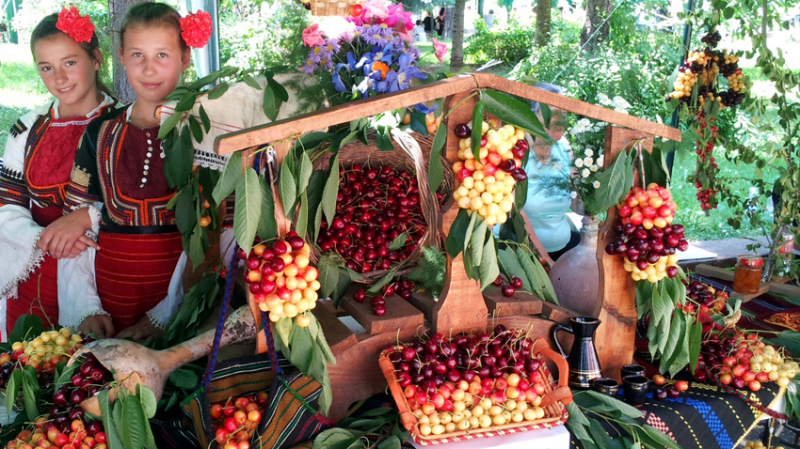
Photo: https://bnr.bg/ 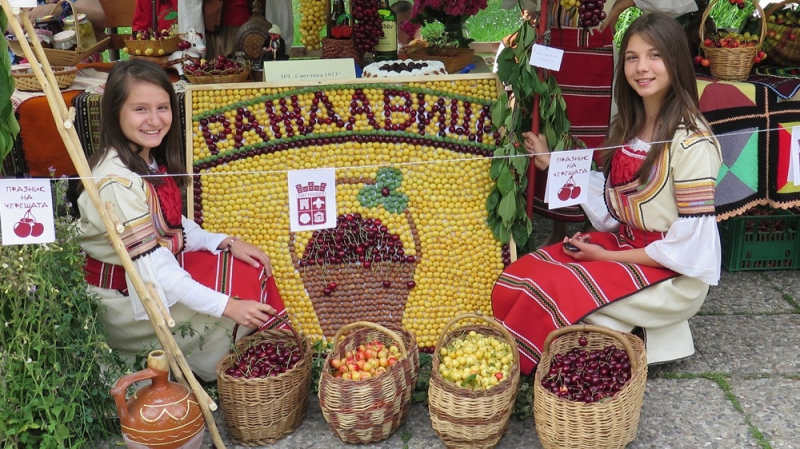
Photo: https://privateguidebulgaria.com/












